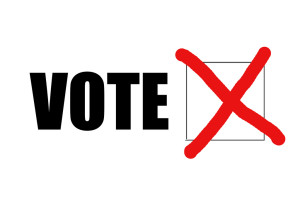Conservative MP Wai Young claims the Conservative are acting ‘in the same vein’ as Jesus Christ with anti-terror bill, C-51.
This is a bold claim and not the first time the Conservative Party has laid claim to the Christian Faith and appealed to Christian voters. Which got me thinking, who would Jesus vote for?
 This is not an easy question to answer. Would Jesus vote for security? Would Jesus vote for better health care funding? Would Jesus vote for more social programs to care for the poor and the marginalized?
This is not an easy question to answer. Would Jesus vote for security? Would Jesus vote for better health care funding? Would Jesus vote for more social programs to care for the poor and the marginalized?
If we examine the underlying ideology (and not get mired in specific policies) that informs the various parties we should be able to make a valiant attempt to answering if Jesus would vote for a certain party.
First, let start with the governing party, the Conservative Party of Canada. The Conservatives are based on an ideology of low taxes, small government and personal choice. Stephen Harper has repeatedly said, parents know best their child care needs, so putting money back into parents pockets so they may choose the daycare options for them is a priority (and part of the underlying ideology that informs their policies).
The UCCB payments are all part of a greater neo-liberal ideological framework. While many will say it is a shameless vote buying mechanism, it also reflects the neo-liberal position of the Conservative Party; that personal choice takes priority over the collective use of resources.
The question we need to answer then is Jesus in favour of personal choice.
St Paul tells us in 1 Corinthians 12:12-26 that we are all members of one body, the body of Christ, the church. This body metaphor is key to understanding the responsibilities we take on in baptism, namely to care for each other and that we are intrinsically linked.
Indeed, the body does not consist of one member but of many. If the foot were to say, ‘Because I am not a hand, I do not belong to the body’, that would not make it any less a part of the body. And if the ear were to say, ‘Because I am not an eye, I do not belong to the body’, that would not make it any less a part of the body. If the whole body were an eye, where would the hearing be? If the whole body were hearing, where would the sense of smell be?
It is simply difficult to imagine a member of a body making a personal choice. The body works as a collective, united and whole. Personal choice comes to an end after one comes to God through Jesus Christ. At our baptism we enter into a covenant with God. God promises us salvation and eternal life in turn we are to teach all that Jesus taught, baptize new believers in the name of the Father the Son and the Holy Spirit: we are to feed the poor, clothe the naked, heal the sick, and in all things we are to be as Christ, offering ourselves to God and to the world.
The underlying Ideology of the Conservative Party of Canada and the underlying ideology of the Christian faith are obviously in direct opposition. Clearly Jesus would NOT vote Conservative.
Secondly lets look at the NDP. The NDP position of social welfare clearly lines up with the teaching of Christ, but does the underlying ideologies line up as well?
The NDP most closely reflects classic socialism, which lends itself to the body metaphor of St Paul as listed above quite well. Yet the question of universal daycare, or universal health care bring into question whether Jesus would vote for the NDP.
God’s justice has never been about universalities. Each are judged accordingly. That being said, the care for neighbour brings into mind the works of mercy taught by Christ.
So while the underlying ideology is not clearly in line with Christianity, it does offer some intriguing possibilities. And while universality is not a Christian ideology, universality does not necessarily work in opposition to Christian ideology. Would Jesus vote NDP? Possibly.
The third party is also very interesting. For instance the sliding scale for Canada Child Benefit from the Liberal platform reflects the fairness found in the teachings of Jesus Christ, and doesn’t promote universality.
The fairness distribution also allows for those that have more to help those that have less, clearly in line with St Paul’s teachings in 1 Corinthians and with the Acts of the Apostles (Acts 4:33-35).
Yet the third party also embraces some of the idea of universalism (which is its underlying ideology as it promotes universal rights and freedoms through the charter), while scripture speaks of each having different needs, Acts 4:33-35:
With great power the apostles gave their testimony to the resurrection of the Lord Jesus, and great grace was upon them all. There was not a needy person among them, for as many as owned lands or houses sold them and brought the proceeds of what was sold. They laid it at the apostles’ feet, and it was distributed to each as any had need.
So would Jesus vote Liberal? Again, I think possibly.
We have looked at the three main parties, but it would be a disservice if we didn’t also look at the two other parties with seats in Parliament. The Green Party and The Bloc Quebecois.
First, the Green Party. The Greens’ focus on the environment and being good stewards of the earth is clearly reflected throughout scriptures and within the teachings of Jesus Christ. The economic platform is also guided by fairness, and not just fairness towards other humans, but to the planet.
The underlying ideology of the Green party places humanity and the planet as part of the same body; intrinsically linked. The question, as it pertains to Christianity is, “are we of this world?”
In our understanding of baptism, the answer is yes … and no. Marked, as Christ’s own, we become citizens of both the heavenly city and the earthly city. We exist in the here and now, but also at the end of time with God in eternity. So the body metaphor stretched to include the earth, of which we are commanded to be good stewards of, does not fully reflect the underlying principles and ideology of Christianity. Yet we cannot dismiss much of Christian Stewardship underlying the ideology of the Green Party.
So would Jesus vote Green? Again, I believe possibly.
And finally the Bloc Quebecois, a regionally based party existing solely for the purpose of advancing the cause of separation, or in Christian theo-political terms, advancing a schism.
St Paul is clear in 1 Corinthians that schism, division in the church, in the body, is a sin. The underlying ideology of separation goes directly against both the idea of dividing the body and the warnings against schisms.
In short, would Jesus vote for the Bloc Quebecois? NO
 Now you may be asking yourself, why answering the question who Jesus would vote for or wouldn’t vote for? Simple. I am a Christian. As a Christian, my faith informs who I will vote for, who I will choose to represent me and my beliefs and values. I cannot separate my faith from my vote. It is who I am.
Now you may be asking yourself, why answering the question who Jesus would vote for or wouldn’t vote for? Simple. I am a Christian. As a Christian, my faith informs who I will vote for, who I will choose to represent me and my beliefs and values. I cannot separate my faith from my vote. It is who I am.
Knowing this, and knowing who most closely represents the Christian faith I espouse in their policies and underlying ideology is important for when I make my choice on October 19th. I, like many other Christians always serving my Lord and Saviour first and foremost, will cast a ballot. I pray that we all cast a ballot that reflects the kingdom of God and not kingdoms of this world.
